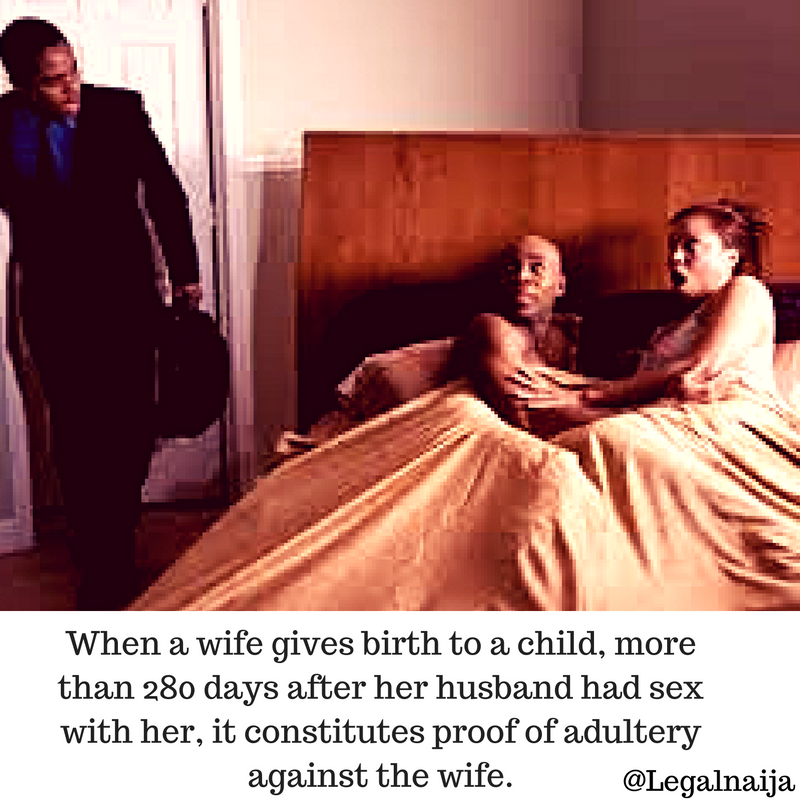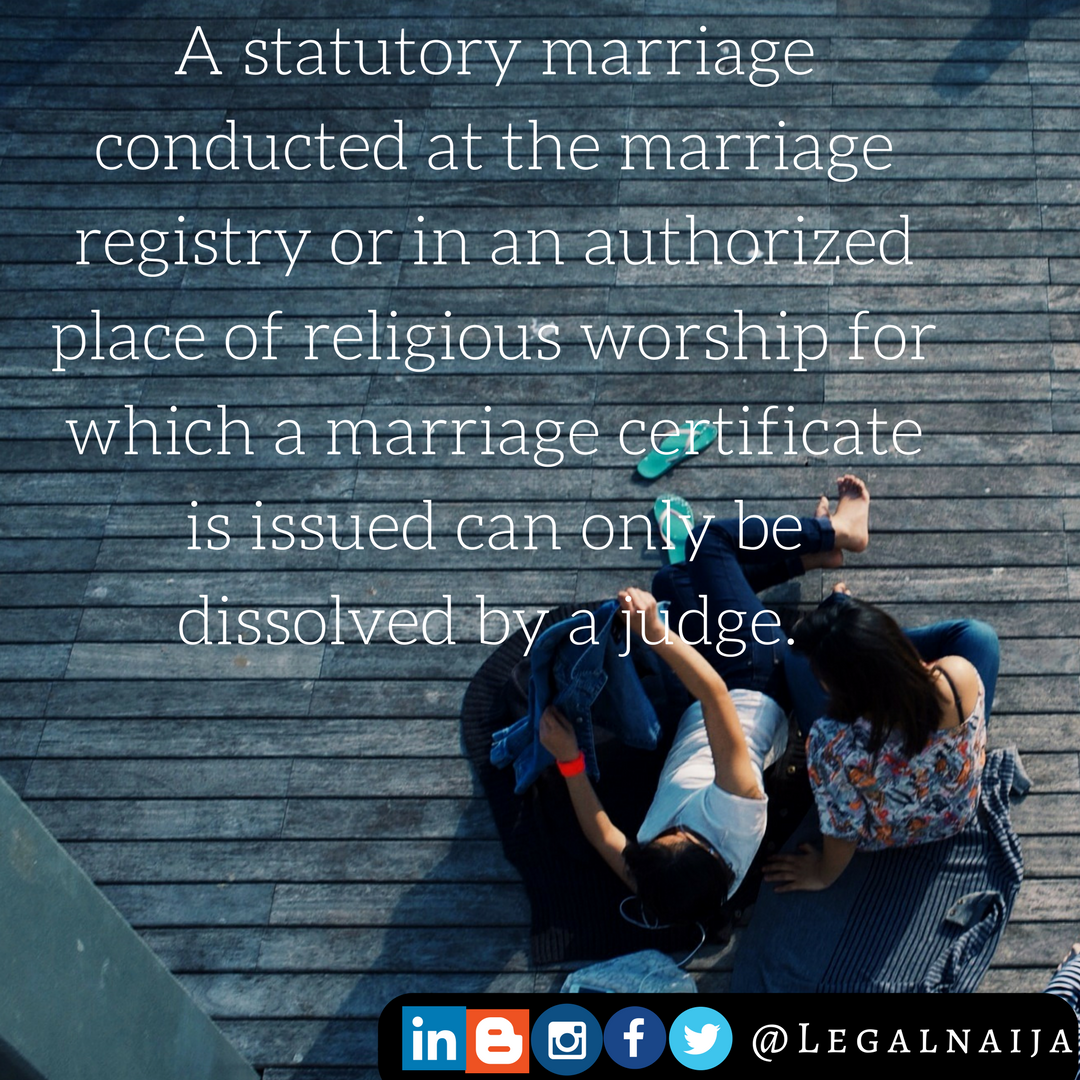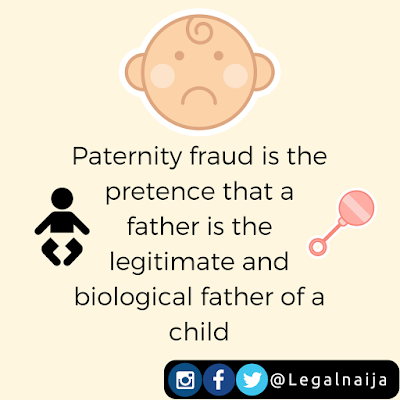
What to prove to get a divorce in Nigeria | Adedunmade Onibokun

Official statistics from
the National Bureau of Statistics suggest that divorce is exceedingly uncommon
in Nigeria with just 0.2% of men and 0.3% of women having legally untied the
knot and well under 1% of couples admit to being separated. But as a Legal practitioner,
I seek not to agree with this statistic especially as I witness many divorce
proceedings in family courts and the newspapers are regularly awash with
reports of petitions for dissolution for marriages.
the National Bureau of Statistics suggest that divorce is exceedingly uncommon
in Nigeria with just 0.2% of men and 0.3% of women having legally untied the
knot and well under 1% of couples admit to being separated. But as a Legal practitioner,
I seek not to agree with this statistic especially as I witness many divorce
proceedings in family courts and the newspapers are regularly awash with
reports of petitions for dissolution for marriages.
Moreover, it has been
argued in several quarters that the above statistics do not put into
consideration the number of marriages conducted under traditional law and also Islamic
law.
argued in several quarters that the above statistics do not put into
consideration the number of marriages conducted under traditional law and also Islamic
law.
Under Nigerian law, a statutory
marriage can only be dissolved by a court order and divorce is guided by the
Matrimonial Causes Act. It is also worthy to note that under Nigerian law, marriage
is between a man and a woman, as Nigerian law does not recognize same sex marriages
or unions. The law also further provides a 14 year jail term, for anyone who participates
in same – sex unions or relationships.
marriage can only be dissolved by a court order and divorce is guided by the
Matrimonial Causes Act. It is also worthy to note that under Nigerian law, marriage
is between a man and a woman, as Nigerian law does not recognize same sex marriages
or unions. The law also further provides a 14 year jail term, for anyone who participates
in same – sex unions or relationships.
With regard to petitions
for dissolution of marriage, Section 15(1) of the Matrimonial Causes Act provides
that, a petition may be presented to the court by either party to the marriage upon
the ground that the marriage has broken down irretrievably.
for dissolution of marriage, Section 15(1) of the Matrimonial Causes Act provides
that, a petition may be presented to the court by either party to the marriage upon
the ground that the marriage has broken down irretrievably.
Submitting a petition for
dissolution of marriage does not however automatically mean that the divorce
will be granted, as the petitioner must be able to prove sufficient grounds to
warrant the prayer being granted. If the petitioner fails to prove this, even
if the divorce is desired by both parties, the petition will be dismissed.
dissolution of marriage does not however automatically mean that the divorce
will be granted, as the petitioner must be able to prove sufficient grounds to
warrant the prayer being granted. If the petitioner fails to prove this, even
if the divorce is desired by both parties, the petition will be dismissed.
The grounds that a petitioner
must prove to show that the marriage has broken down irretrievably are stated
in Section 15(2) of the Matrimonial Causes Act, they include –
must prove to show that the marriage has broken down irretrievably are stated
in Section 15(2) of the Matrimonial Causes Act, they include –
a. That the other partner (i.e.
respondent) has willfully and persistently refused to consummate the marriage,
meaning that the other spouse has refused to have sexual intercourse since the
celebration of the marriage.
respondent) has willfully and persistently refused to consummate the marriage,
meaning that the other spouse has refused to have sexual intercourse since the
celebration of the marriage.
b. That since the marriage the respondent
has committed adultery and the petitioner finds it intolerable to live with the
respondent.
has committed adultery and the petitioner finds it intolerable to live with the
respondent.
c. That since the marriage the respondent
has behaved in such a way that the petitioner cannot reasonably be expected to
live with the respondent.
has behaved in such a way that the petitioner cannot reasonably be expected to
live with the respondent.
d. That the respondent has deserted the petitioner
for a continuous period of at least one year immediately preceding the
presentation of the petition;
for a continuous period of at least one year immediately preceding the
presentation of the petition;
e. That the parties to the marriage have
lived apart for a continuous period of at least 2 years immediately preceding the
presentation of the petition and the respondent does not object to a decree being
granted;
lived apart for a continuous period of at least 2 years immediately preceding the
presentation of the petition and the respondent does not object to a decree being
granted;
f. That the parties to the marriage have
lived apart for a continuous period of at least 3 years immediately preceding
the presentation of the petition;
lived apart for a continuous period of at least 3 years immediately preceding
the presentation of the petition;
g. That the other party to the marriage
has, for a period of not less than one year, failed to comply with a decree or
restitution of conjugal rights made under this act;
has, for a period of not less than one year, failed to comply with a decree or
restitution of conjugal rights made under this act;
h. That the other party to the marriage
has been absent from the petitioner for such time and in such circumstances as
to provide reasonable grounds for presuming that he or she is dead.
has been absent from the petitioner for such time and in such circumstances as
to provide reasonable grounds for presuming that he or she is dead.
The dissolution of
traditional or customary marriage is however not as stringent as that under the
marriage act. A customary law marriage can be dissolved without judicial
pronouncement or intervention.
traditional or customary marriage is however not as stringent as that under the
marriage act. A customary law marriage can be dissolved without judicial
pronouncement or intervention.
For more information about
how to get a divorce, you can talk to a lawyer or send a mail to the
undersigned.
how to get a divorce, you can talk to a lawyer or send a mail to the
undersigned.
Adedunmade Onibokun
Principal
Partner
Partner
Adedunmade
Onibokun & Co.
Onibokun & Co.





